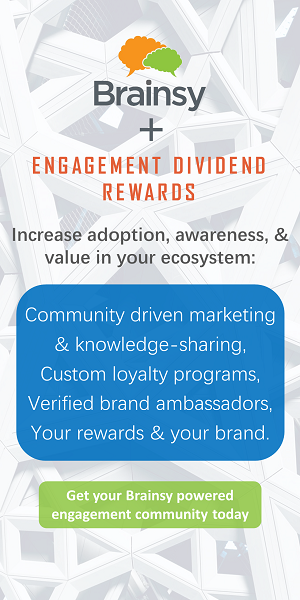As an entrepreneur I live to create value in as many ways as possible and to have that value amplified through others I might trigger to act entrepreneurially. It's about having an impact both socially and economically. Getting a financial return in the future is part of the driver but it is not the only thing that would motivate me or others I decide to work with. I did not always have these views, growing up and maturing as a professional I was very much caught up in chasing the money and as much of it as I could accumulate by competing with my competencies. By any U.S. economic measure, I was born into a challenging circumstance like so many others who came to the U.S. from foreign lands. This adversity was an ally, an easy way to see that even if I only figured out how to survive I was already doing well.
Over time I came to understand the path to success, define it for oneself and do not let others box one into a fate based on their limited notions of one's future prospects. This freedom of self-identity is one of the most critical aspects of emerging out of the specter of poverty in the U.S. and removing the limitations of American exceptionalism. If I gradually set the bar higher as I accomplished my own goals I could scaffold out of my predicament and compete on terms I set as important to me. I was free to disregard the social signals and costly symbolic decisions that define a social ladder that was not available to me but that I could climb on the other side of the mountain even if that side was a flat vertical wall.
Once I defined success what was I to do about failure. I intuitively knew that success was not the absence of failure and that failure and success where not opposites. It was clear that if I set the bar so high that I could never attain the goal that I might not continue trying for the 25 years it would take to reach economic freedom. I did not want to embrace failure or treat it was a teaching moment and rationalize each failure as just part of the process. I never viewed that this would motivate me to compete and cooperate with others who strive for success. I wanted to avoid the complacency of passing off a failure as just random bad luck. I was fine with success including random luck since if and when it happen I would welcome the moment and exploit it with others. Tossing failure to random bad luck seemed to easy to resign oneself too, given the start of my fate at birth which I considered a blessing even with the economic hardship.
To maintain the motivation to continue I had to figure out how does one become immune to failure and is it possible to recover or convert a failure into a success, or to at least neutralize and contain its impact. Contrary to the convention of "just get over it and move on" I decided to take the approach of never accepting failure but instead figure out how to recover or convert the failure into something that had some benefit to someone, even if I got no benefit from it. This seemed to be possible for me to achieve so long as I worked with other competent and like minded people willing to compete and not resign themselves to failure.
This brings me to the latest of my recent entrepreneurial activities. The last startup I focused time on over the last two years. This taught me the lesson of immunity to failure and what it means in reality. My co-founder and I had a loose vision for pursuing what we considered a huge untapped market, the cash economy, which is how most of the global population transacts business daily. We wanted to impact the lives of the people at the bottom of the economic pyramid, the 5+ billion people who do not have bank accounts and likely will never have them. We both understood that this was so ambitious as to border on lunacy to even attempt to solve it but since we have both achieved economic freedom we could afford to take on a challenge that was so likely to fail that only people who were immune to failure would attempt it.
We focused on three aspects, could we conceive of a solution for what we called "cash logistics" (tracking the movement of cash) in a way that facilitated local commerce to grow at the same rates as e-commerce and intersect the two. Could we find distribution in the developing world, and could we find a first customer to work with? I knew I could assemble a team of tech talent quickly and my partner was confident that he could get the distribution and customer. That started our journey to build the company. We got the customer, distribution and was able to find the talent to build the solution. 18 months later we were in the market with a deployed solution and learning fast how much we still did not understand the realities of the developing world market.
Like any startup that is pursuing a long tail transaction business, it takes capital and time to get to the volumes needed to reach breakeven. We knew this going into the business and we knew that once investors understood the value and we solved enough of the market problem that investor greed would set in and cause the typical fracture that happens between the founders and the investors. How could we protect against this and have the company mission continue so that the value reaches the market? In effect my co-founder and I asked how can we be immune to failure, the type that would shut down the company instead of allowing it to fulfill its promise to the market.
From the start, we hired our replacements, people who could run the company and continue with the mission beyond our involvement. We spent the time needed to train and prepare them with a longer-term plan that would get the product into the market. All that was left was to find the professional investors who understand the value being created without destroying value through greed inflicting negotiations that cause lasting conflicts with the team that is focused on creating the value.
The fracture moment happened, the prospective investors, who happened to be customers as well, hit the moment of realized greedy aspirations, as we predicted. That put my co-founder and I at a decision point if we could not come to reasonable terms on an investment. If we believed that we had no other viable choice and the negotiations was deemed to be unreasonable, what would we do? We had reached 12 employees in the company as well as other contractors who were dependent on the company. The employees believed in the longer term vision for the company and the mission, but we knew that they were all in circumstances where self-preservation would rule their decision making. None of them had reached the economic freedom of choice to be immune to external forces like this. My partner and I decided not to fund the company ourselves. Since we could not come to reasonable terms we could shut down the company but that had dire consequences for some of the staff who did not have easy employment options in the markets they lived in.
My partner and I did what no one expected, we handed the company over to the staff, let them come to terms that they were willing to accept with the prospective investor, and we stepped out of the company completely. This seemed completely irrational, why would we give up ownership, even minor positions when we did not have to, or why would we not just shutdown the company if we did not want to continue? The answer is within having achieved economic freedom, some notion of what is enough, and understanding the immunity to failure.
This notion of immunity to failure allowed us to treat the mission and it's continuance as more important that our own speculative future economic gain. We understood that what we attempted was ambitious and was only a partial solution and a lot more was needed which we had not gotten to yet to fulfill the market promise. We understood that if the company solved a small part of the problem that it would unlock even larger opportunities that we were more interested in pursuing once we got past the initial phases of the market adoption. By stepping completely away this freed up our time which we considered to be much more valuable than continuing with a situation that was capital constraint. We did the right thing, let the staff take over, have ownership they were comfortable with, but more importantly continue to get the solution into the market. The investors will get a financial return eventually but not realize the full potential that would have been possible if they really understood what it will take to get the full market active.
My co-founder and I got free to compete, we converted the failure into a success for the staff and we have some valuable lessons we learned about the developing world market that we plan to exploit in the future. I call this "roll it forward", which is once the top layer of problems are known in pursuing and opportunity the next layer is revealed and then one has to decide whether that layer is more valuable than the previous.
Immunity to failure requires perspective but mostly having achieved economic freedom so that the decision to "do the right thing" under all circumstances is the option that is taken.
To get immunity to failure:
- Define success as a scaffolding goal independent of failure
- Have a mission that transcends the specifics of the situation.
- Get people involved who can take over if something happens to disrupt the progress that no longer works for your continued involvement.
- Do not accept failure, figure out how to recover from it, convert it, and roll it forward.
- Forget self preservation, that is only surviving not thriving, focus on what consumes time not money.
- Get to economic freedom, or if young then understand your affordable loss and extend this beyond the current situation.
- Do the right thing even when it might feel better to kill the company or settle for something that isn't worth the time. Basically nothing is something more valuable than something if it frees your time and releases you from any obligations.
- Figure out the intrinsic assets of experience that can be rolled into the next effort.
- Do not let greed factors kill the effort, let it play out anyway, those lessons are the most valuable.
- The lessons of failure reveal themselves much later on, figure out how to let the situation persist without your involvement so you can see where the path leads.
- Partial market solutions open up even larger market opportunities so refocus on the new insights.
- If you take on something you know is too ambitious when the fracture point happens its time to move on and understand what was learned that someone else might of paid for but through their greed might not see clearly.
reference: "StartUP SOAR Coaching: Coaching the StartUP for Successful Outcomes by Adapting to Resiliency" by Ray Garcia, available on Amazon.comand all major book distributors.
Register for FREE to comment or continue reading this article. Already registered? Login here.
0
